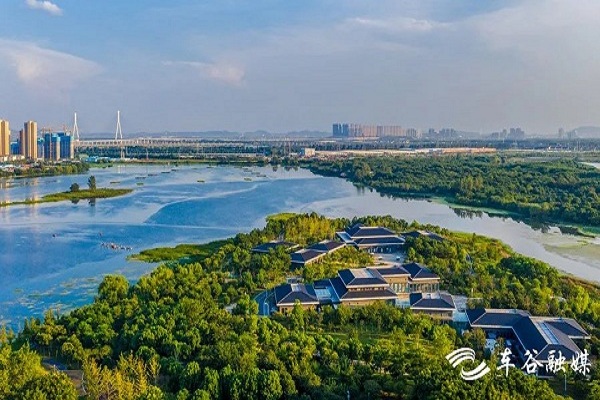

The Tanghu Lake Workers' Cultural Palace is now surrounded by lake waters and ample vegetation. [Photo provided to en.whkfq.gov.cn]
In response to the development philosophy that "lucid waters and lush mountains are invaluable assets", the Wuhan Economic & Technological Development Zone (WEDZ) has begun prioritizing its ecological layout since 2021. Its natural environment now takes up more than 40 percent of the zone's total space.
The water environment governance project of the five lakes – Chuanjiang Lake, Longhu Lake, Zhulin Lake, Niuwei Lake and Shangwuqiu Lake – ranked first among 2020 Wuhan municipal engineering projects.
In the Longling Mountain Eco Park, residents can be seen strolling along the path, with autonomous sightseeing buses, vending cars and sanitation trucks traveling through the forest. They have witnessed how the place went from an abandoned mine to China’s first autonomous driving-themed park.
In addition, two-thirds of Junshan New City is now green space, with the rest devoted to the headquarters economy, modern services and public services.
The Tanghu Lake Workers' Cultural Palace, which used to be an inhospitable place for waste storage, now boasts a 60-percent greenery and is hailed as China's most beautiful workers' cultural activity center. Facing Tanghu Lake, the palace is now frequented by residents who love reading, painting, playing cards, and watching operas.
The zone has proposed accelerating the development of a green and circular economy, promoting the upgrading and transformation of the industrial structure, the mixing of energy sources, and land arrangement, leading a low-carbon lifestyle, and encouraging eco-efficient consumption and transportation.